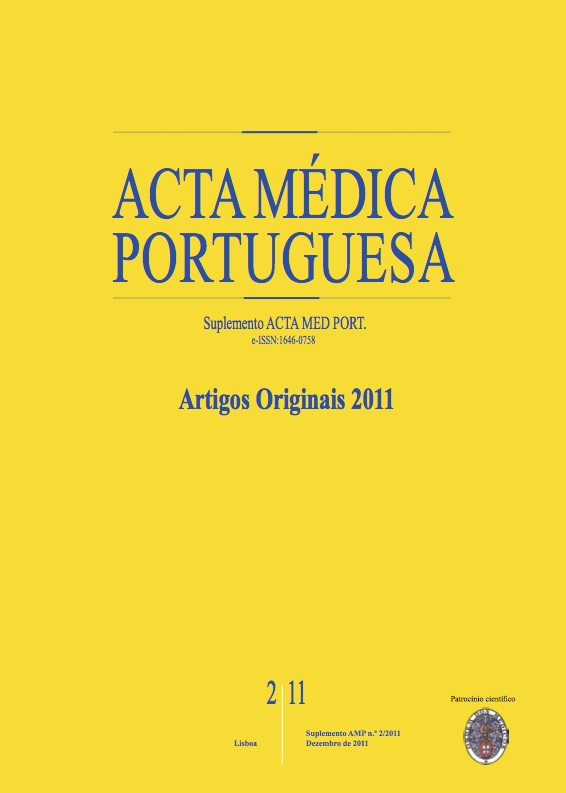Adherence to HAART, quality of life and psychopathological symptoms among HIV/AIDS infected patients.
DOI:
https://doi.org/10.20344/amp.1438Abstract
Patient adherence to highly active antiretroviral therapy (HAART) is essential to treatment success, and improved quality of life (QoL) and mental health have been recognized as important outcomes from the HIV treatment. However, very few published research studies have related these domains to HAART adherence. The purpose of this study was to examine the association between adherence to HAART, QoL and psychopathological symptoms in a sample of HIV-infected patients, and to identify demographic, clinical and psychological predictors of non-adherence.A cross-sectional study was conducted in the main services/departments of infectious diseases of Portuguese Hospitals. The sample consisted of 762 HIV-infected patients. The assessment protocol included the Portuguese versions of the WHOQOLHIV-Bref and the Brief Symptom Inventory (BSI). Results: Of the 762 patients, 133 (17.5%) reported not to fully adhere to HIV medication. Non-adherent patients reported significantly lower QoL. Follow-up tests reported significant differences in four of six domains, with the exception of Social relationships and Spirituality domains. Regarding psychopathological symptoms, there was also a significant effect. Follow-up tests reported a significant difference only on psychoticism. In multivariate logistic regression, younger individuals, people diagnosed and on medication for longer time, with lower CD4+ T cell count, on symptomatic/AIDS stage and with higher scores on interpersonal sensitivity, anxiety and psychoticism were more likely to be non-adherents.Future studies assessing HAART adherence should consider the interplay of demographic and HIV-related variables, as well as psychological status. Also, it may help to elicit those people who are at risk for non-adherence, as well as poorer quality of life and mental health.Downloads
Downloads
How to Cite
Issue
Section
License
All the articles published in the AMP are open access and comply with the requirements of funding agencies or academic institutions. The AMP is governed by the terms of the Creative Commons ‘Attribution – Non-Commercial Use - (CC-BY-NC)’ license, regarding the use by third parties.
It is the author’s responsibility to obtain approval for the reproduction of figures, tables, etc. from other publications.
Upon acceptance of an article for publication, the authors will be asked to complete the ICMJE “Copyright Liability and Copyright Sharing Statement “(http://www.actamedicaportuguesa.com/info/AMP-NormasPublicacao.pdf) and the “Declaration of Potential Conflicts of Interest” (http:// www.icmje.org/conflicts-of-interest). An e-mail will be sent to the corresponding author to acknowledge receipt of the manuscript.
After publication, the authors are authorised to make their articles available in repositories of their institutions of origin, as long as they always mention where they were published and according to the Creative Commons license.









